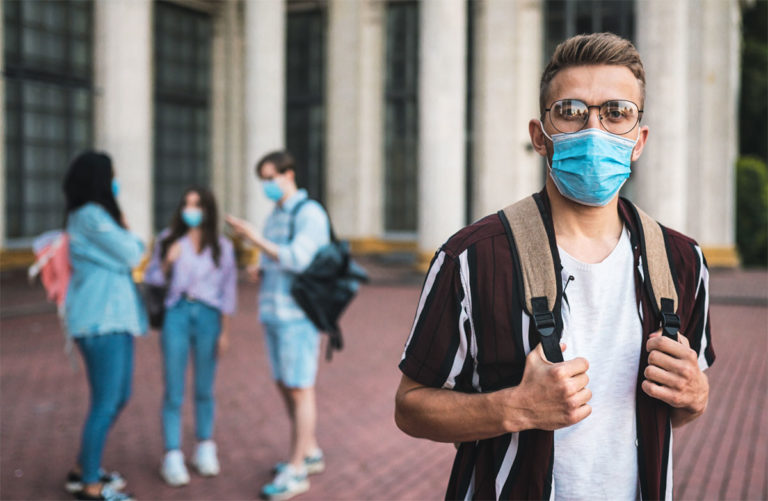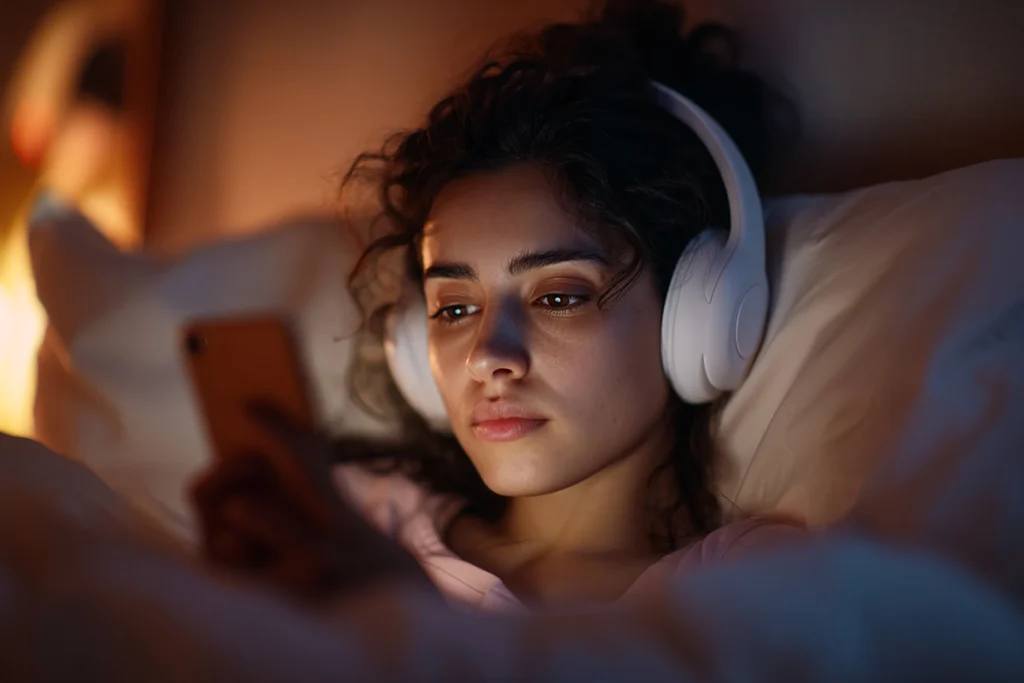Stress, anxiety, disappointment and isolation continue to plague the mental health of college students across the country. Following its April 2020 survey, Active Minds surveyed students again in September 2020 to determine how the COVID-19 pandemic has impacted student mental health over the previous six months. Unfortunately, the trend shows that the pandemic continues to negatively impact student mental health. The latest survey reveals that one in four students say their depression has significantly increased.
Campus Impact of COVID-19
As of October 1, only 10% of higher ed institutions surveyed by the Chronicle of Higher Education were fully online. This means that a majority of students are on campus in some capacity, whether fully in-person or a hybrid model of in-person and online teaching. This has led to super-spreader events occurring at some campuses, which further complicates contact tracing among the college age group. Additionally, when students test positive with COVID-19, the quarantine process doesn’t always go as expected, with students taking to social media to complain about meals and living conditions.
The chaotic conditions in higher ed as a result of the pandemic have led to 89% of college students experiencing stress or anxiety. The biggest stressor for students is feeling disconnected from friends and loved ones, according to Active Minds’ survey. Similar to findings from TimelyCare’s student survey, uncertainty regarding the unknown is the second most stressful thing that students noted from the past six months.
“Even before COVID-19, some of the main drivers of students dropping out were isolation and loneliness,” said Dr. Alan Dennington, chief medical officer for TimelyCare, in a recent episode of The Key with Inside Higher Education podcast. “Students feel lonelier today than they did before. Whether you want to say that’s a disconnect because of social media use or heavy use of technology and phones, they’re feeling alone, and COVID-19 pushing them into their own places and separating them from their friends has only exacerbated that.”
Students’ Coping Strategies and Resiliency
While the pandemic is showing adverse effects on overall student mental health, there is cause for optimism. While stress and anxiety are high as a result of COVID-19, 78% of students are hopeful about school-related goals and future job prospects (in contrast to how parents feel about their student’s future). There has been tremendous focus on mental health in higher ed since the beginning of the pandemic, which has led to students being more aware of personal mental health issues and the issues facing those around them. In response, two thirds of students (66%) report an increase in supporting others with their mental wellness.
One alarming statistic from April’s survey: 55% of students didn’t know where to go for mental health assistance. Now, the latest survey finds that students report receiving information from their schools about mental health (66%) and healthy coping strategies (49%).
Students are finding ways to cope with their stress and anxiety. According to Active Minds, the top five coping strategies that college students say they have benefited from during COVID-19 are:
- Virtual interaction with friends (68%)
- In-person interaction with friends (57%)
- Being around pets (56%)
- Familial support provided by living at home (42%)
- Virtual mental health services (28%)
TimelyCare Executive Director of Mental Health Dr. Jan Hall says that listening with empathy is a key to supporting college students during this time.
“Rather than listening to provide advice, listening with empathy allows a student to feel that they can express their frustrations,” said Dr. Hall. “You don’t have to have all the answers, but it’s important to be a support while the student describes their concerns and options.”
Supporting Campus Physical and Mental Health
The American Council on Education’s (ACE) most recent survey found that 53% of college and university presidents say student mental health is their most pressing issue, and it was the top concern of presidents identified by the survey. Since the pandemic began, the spotlight has been bright on mental health as reports showed the mental health impact of campus closings, quarantine and isolation.
It’s important that student well-being is at the center of higher ed campus plans. Over half (55%) of presidents in the ACE survey reported that fall 2020 enrollment had decreased in comparison to fall 2019. How colleges and universities adapt to the changing needs of students will play a critical role in campus success — across rates of student engagement, retention and graduation. Research shows that a school’s healthcare services — particularly mental health — can be a deciding factor for many prospective students.
More than a quarter of students have turned to virtual mental health services as a coping strategy during the pandemic, according to Active Minds. Virtual mental health services, like the telehealth programs offered by TimelyCare, can make a significant impact on higher ed campuses, with key benefits including:
- Immediate emotional support for students dealing with the stressors of COVID-19, social distancing and societal issues.
- 24/7/365 care that expands after-hours support, eliminates wait times and provides support for critical situations.
- The ability to comply with state licensure requirements and reach out-of-state students who are learning remotely or not able to be on campus.
- Continuity of care with existing campus mental health resources.
If you’re interested in learning how telehealth can support your campus, contact TimelyCare to see how 24/7365 access to mental health can make a difference in the lives of students.






